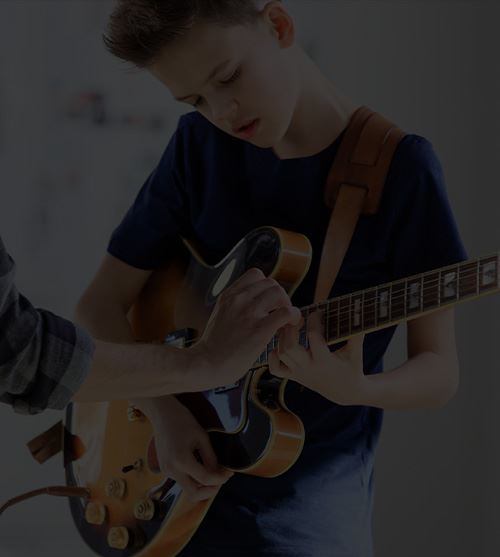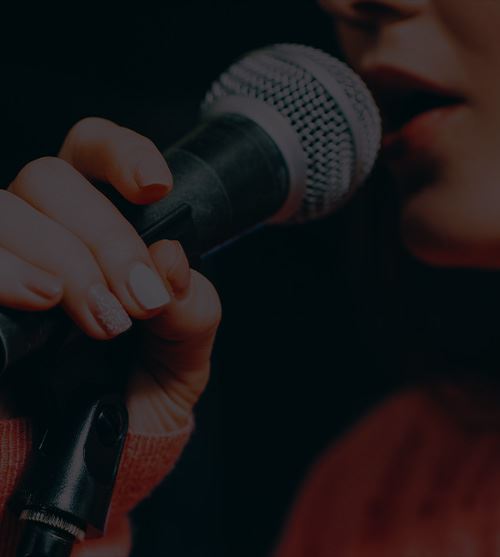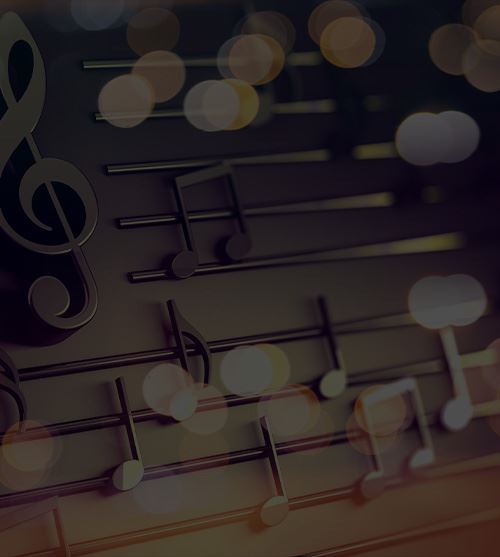Issues - Because they want to do things right, they frequently try to start everything, even as a beginner or intermediate, at 100% perfection – full speed, perfect rhythm, perfect accuracy, as the starting point, mind you, not the end product. So the music they want to do can become a huge, unassailable cliff of difficulty, too mountainous to scale with their budding abilities, because it’s supposed to go like this. Not slower, or just a small piece, the whole thing, bang, perfect from the first run through. For this same reason they may take or want to take a very long prep time to perform a song, working on a single song for 6 months dutifully, while in their heart they really want to be performing 100 songs a year (or even better, any song they want anytime).
Even though they intellectually understand rhythm values and measures well, they frequently cut off long notes, measures, and rests, and may have problems seeing the exact ratio between quarters and 1/2s and 1/8ths when actually playing or singing. Cutting off the long notes and rests comes from just wanting to get done, let’s get on with it, I don’t want to wait around!!
They may have ear problems, singing off-key (as opposed to singing flat and sharp), but probably because they are hearing in greater detail than other people and have picked up clues for singing or matching the correct pitch that aren’t actually the correct ones.
Learning to adlib (improvise) frequently poses a problem for these people: i.e., how can you do it the ‘right way’ if there is no right way? The phrases “just go for it”, “just express yourself”, ‘let go’, ‘make it up’ can have no meaning for this student, even though many instructors and friends will try these approaches to get over the improvising hump.
This link is for information about music lessons outside the Dallas area. Click here for that or continue reading about this personality below and enjoy our site.
Solutions - These musicians need to learn to be comfortable breaking a song down into small parts, maybe smaller parts than they’d like. At the same time, they have to learn to ‘perform’ and get to the end of songs, even though there may be some mistakes along the way, and force themselves to complete songs – again, maybe before they feel the piece is quite ready yet. They may need help simplifying their music to a digestible difficulty and may have to be shown where it’s safe to simplify and how to lower the bar just enough to actually learn a song.
Rhythm needs to be a regular focus of learning until all note relationships are mastered – again, not intellectually, but actually playing or singing them. It also helps to have someone there helping them GO SLOWER, rather than just saying to themselves ‘go slower’ and then going the exact same speed as before.
Ear problems are difficult for fix for any musician, but ‘the first step is knowing that you have a problem, my brother’. So start by getting someone with a good ear that you trust to listen to you as you try to match pitches – they can tell if you’re off and which way to go to fix it. There are some (rather expensive) programs that do this as well; to be useful for this development, the program must hear you, tell you if you’re wrong or right and which way to go to correct the pitch. Almost certainly you don’t have a prohibitive issue with your pitch hearing, including your singing if you’re a singer. It may take a lot of work, but there is 99.9% certainty that you can fix it.
You can learn to adlib well, but the approach needs to be different than above (just go for it, etc.). Start by listening to your favorite musicians and identify short licks you like (or from a friend or instructor). Short, we’re talkin’ 4 to 8 notes here!! Master these licks (short, repeatable musical ideas), learning 1, then 5, then 15, and 50 of them. Try placing them in a song when you’re adlibbing. Mix in the things you occasionally hear in your head. Your soloing will sound great as you do lick 11, then lick 22, then lick 1 – and no one will know that’s your approach. Eventually, as you master many licks and apply them many times, the form of lick 25, lick 77 will fall away and you’ll have all those ideas internalized and they will come out naturally, without planning, and hey, you can ‘just go for it’. BTW, you will have an advantage with learning a lick if you already like it, noticed it, rather than just heard it in a lick book.
Other Issues - Many learners of this type are watchful for fancy, ‘frou-frou’ techniques and areas of musical learning, and so sometimes they mistrust and won’t do the very thing that will make them excellent. Hey, sometimes music isn’t as simple as we might like it to be! Be careful about reducing the mind-boggling panorama that is music down to ‘all songs have just 3 chords’. It just ain’t always so, Madge!
Since you’ve spent your whole life looking for the ‘right’ way and ‘what you’re supposed to do’ you may have the feeling that whatever way to play or sing or learn that you know is the only real way (classical is best, jazz is best, fingerstyle is best, rock is best, metal is best, speech-level is best – the list goes on). So you may occasionally have to be encouraged to see with a wider musical perspective. One way to do this is to look at the edge of what you like (music you like but isn’t the norm for you), and explore that area and see if you develop some new likes.
Frequently these students need help grooving, being expressive and dramatic – because you see, being bold and dramatic may not seem like a natural part of music if you’re focused on accuracy and correctness. But if you think about it, you’ll realize that the reason you love the music you do is the passion, emotion, power, blazing skill, etc., contained therein. So, how do you get that passion and drama in there when it’s not so natural? Well, don’t worry, it’s down in there or you wouldn’t have any tastes (like or dislikes) in music. You should be encouraged to add expression, drama, and funkiness to your playing. You may feel like you’re way overdoing it, but with reliable people to advise you, what eventually comes out will be just right in terms of expressiveness and power.
These learners have to be more careful than most about over-committing their time so they actually have the time to learn the music in their heart. Many people say they’re over-committed, this person usually really is.
Many people of this type quit being a musician (or trying to become one) because they conclude they ‘just can’t do it’, they’re ‘not gifted’, ‘it’s not for me’. Probably, though, they just needed to go slower in what they demanded from themselves and be more patient with their rate of progress (which is usually very good). They need encouragement to accept mistakes as a reasonable part of the process of learning music, not as an indication that they’re doing the wrong thing trying to learn music. Slow and steady.
Conclusions and results - With patience and good direction (whether through private in-studio instruction or personal study) you can learn to do all types of music ‘the right way’. You need to make yourself go slow, actually fix the little mistakes that are there AND make yourself play all the way through your song (the amount you can get through in 2 to 4 minutes) everyday – warts and all. Fix those rhythm problems; it’ll pay off for you. For now take adlibbing as a defined list of licks with some of your own things thrown in until that method falls away and the ideas are flowing in your head/heart. Try being more aggressive, emotional, and dramatic than you feel – it helps to have a friend or instructor give you feed back while doing this. Don’t give up just because it didn’t work out in 6 months or a year.
I know it sounds hokey, but it’s possible for this type of musician to be anything they want in music: singer, instrumentalist, performer, soloist, composer, singer/songwriter, front man, band member. While some can be aggressive and love the spotlight, more musicians of this type are in a supportive role, playing well and accurately, but not the center of attention. Many fun and friendly performers on stage and in clubs and restaurants around the country are this type of musician. Many are music instructors, both public and private. When they have become a good musician they can be a rock-solid anchor for any group or ensemble, including the most demanding professional ones, as someone who can be counted on to make a song or performance work when the chips are down and everybody’s freaking out. And many, many people of this personality play and sing wonderful music at their homes and churches for their own, and others, pleasure. Take lessons at Promethean Studios; we get where you’re coming from, we can help and teach you. We can make you a musician.
For more information or to sign up for lessons with our instructor who knows the right way to learn and that can make you a musician AND $50 off your first month of lessons, click here. If you live outside the Dallas area, click here for online lessons - live, private online lessons done long distance, all through the internet, with the same kind of instructor who understands how to teach YOU (and $50 off your first month of lessons).
Promethean Studios at Dallas Music Lessons: Private In-Studio, Group Lessons, Bands, and Camps. Lessons | Guitar, Voice, Piano, Keyboard, Bass, Saxophone, Flute, Oboe, Drums, Percussion, Singing & Voice, Mandolin, Ukulele, Songwriting/Composition, Worship, Theory students | Beginning, Intermediate, Advanced, Professional Teaching, Private In-Studio and Group Lessons in Modern Rock, Classic Rock, Blues, Praise & Worship, Jazz, Country, Classical, R&B, and Metal styles | Music Seminars, Music Workshops, Master Classes, Music Clinics | online lessons, SKYPE lessons, live internet lessons | Teaching Wylie, Allen, Carrollton, University Park, Coppell, Farmers Branch, Rowlett, Farmersville, Princeton, Frisco, Garland, Metroplex, Highland Park, Lake Park, Prosper, Lucas, McKinney, Melissa, Lewisville, Murphy, North Texas, Park Cities, Flower Mound, Richardson, Rockwall, Dallas, Sasche, The Colony, Anna, White Rock, Plano, and Addison.
You can contact us by phone at (888) 862-7210 or at info@dallasmusiclessons.com .


 FAQs
FAQs Music Seminars
Music Seminars Discounts and Gift Certificates
Discounts and Gift Certificates

